Hi everyone, Keren here with a topic very dear to my heart. There is something utterly wonderful about the permanence of fabric. The way it drapes, or can be stiffened. The textural softness (or coarseness dependent on the weave). Its smooth surface perfect to be stamped on, painted on, stitched on. You can manipulate it, pleat it, divide it, slash it, use certain fabric's transparent properties to create interesting effects and layers. You can dye it, bleach it, add beads, or twigs. Why not combine it with paper, cardstock, Infusions, Rusting Powder, Fresco Finish Acrylic paint?
You can stencil onto it, burn it, quilt it, distress it and couch things into it. It would be hard to argue that fabric isn't one of the most versatile mediums around.
We're starting off with a mini masterclass on how to use fabric with paints and more. Liz Borer did a post a few years back, that if you're starting out with fabric, would be a fabulous place to start.
This ATC (there's a set of 4 in the post), is using Infusions, Muslin, Crinoline fabric, Distress markers, Embossing powder, felt and is well worth having a read to see how Wanda Hentges combined them all.
One of the easiest fabrics to get a clear image on is mercerised cotton, the smoothened tight weave makes it a great idea if clarity is your thing. With a more open weave, it becomes more challenging, but Ruth Mescall does a beautiful dive into hessian, hand stitching and Grunge Paste with some useful tips.
I always like an outlier and I'm squeezing in sisal simply to encourage those of you who don't like to sew, nor do much with fabric. Sisal and other fibres (sisal is made into a fabric sometimes, albeit the less glamorous backing for carpets and such) but I wanted to include it as a reminder for how to add softness and/or texture to projects when you perhaps are looking for the finishing touch like Miriam Grazier did here.
Jennie Atkinson is known for soft and vintage, and she uses the softness of muslin to help merge layers. This is also a useful technique for using fabric in a simple uncomplicated way.
Stencilling can be really impactful when done simply. I love the boldness of the red against the white cotton with this fabulously fun and sparkly Christmas stocking by Carol Fox.
Perhaps you could consider using fabric as a tie, or a binding for a journal?!
Fancy a more involved challenge? How about fabric paper? Anneke De Clerck runs through exactly how to do it.
Try using layers, with both the top layer and the underlayer providing a dialogue between them.
You may have heard of Cyanotype, and it's something you could easily do following this version's tutorial. If you stamped your PaperArtsy images and used those as the outlines, even better!
Perhaps you'd like to get a little more experimental with fabric and add fire into the mix! Ula Einstein is an artist who incorporates many mediums into her work; fire, Tyvek (a polyester fibres fabric), thread, rice paper and more.
If you'd like to paint with fabric- you can dye fabric for your palette and sew intricate shapes together. Dyeing fabric with Infusions to see the effects you can get would also be an interesting study. This next piece is a quilt that won 'Best In Show' which is a major accolade in the quilting community at the recent Festival Of Quilts in Birmingham (UK) in August. It's hard to believe this is achieved just with fabric.
Many of you love your journals and with so many options on how to create them; from scratch, using dies, using junk as the basis etc. Fabric journals are another option- and the joy is also in the construction before you ever get to fill it with your art and thoughts.
If you want to create along with us, please share on our social feeds so we can see what you get up to. The best places are Instagram @paperartsy or post in PaperArtsy People Group on Facebook. Make sure you tag us in your contributions, we love to see what you get up to in your creative world!



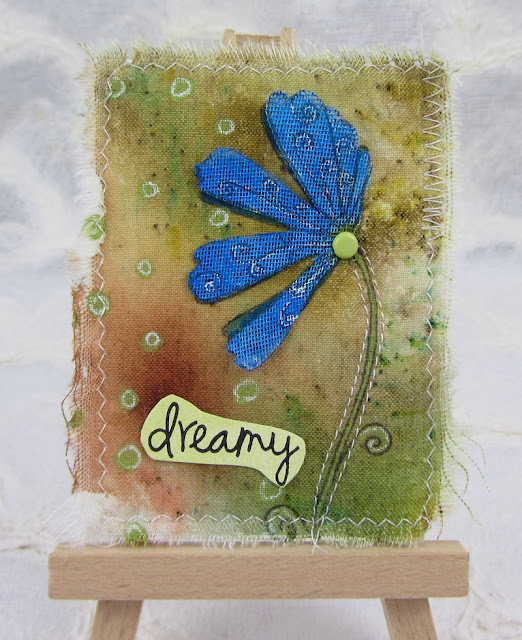


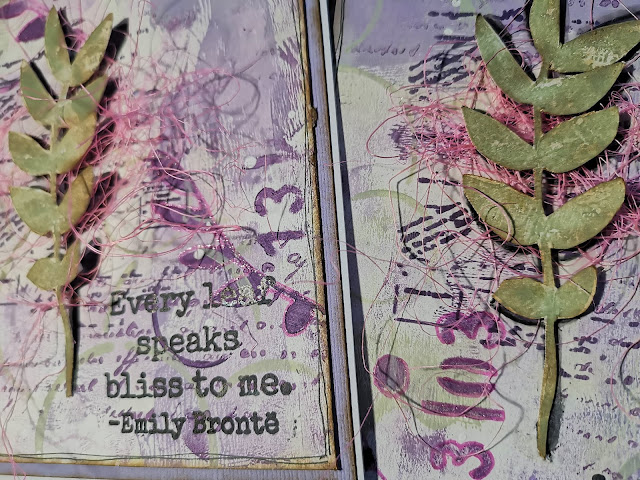


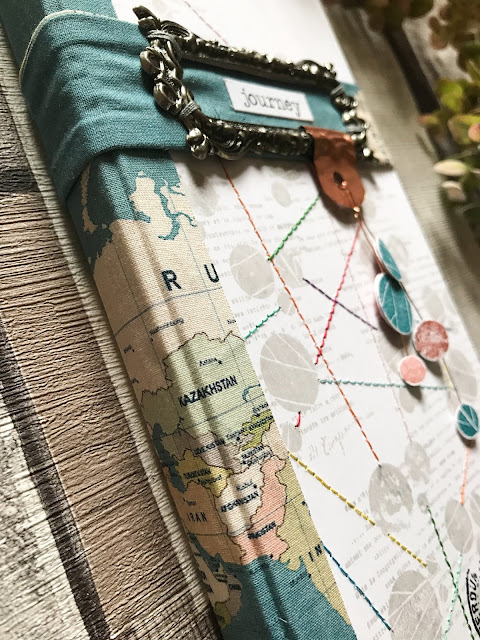
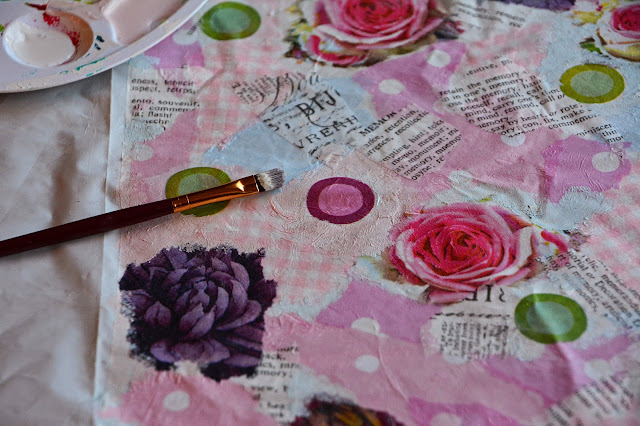
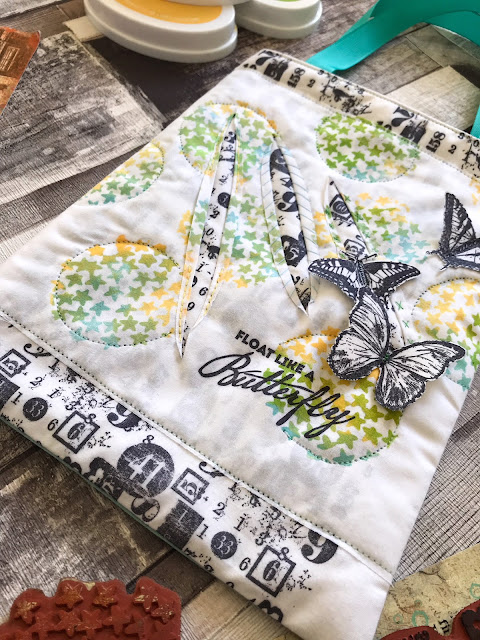

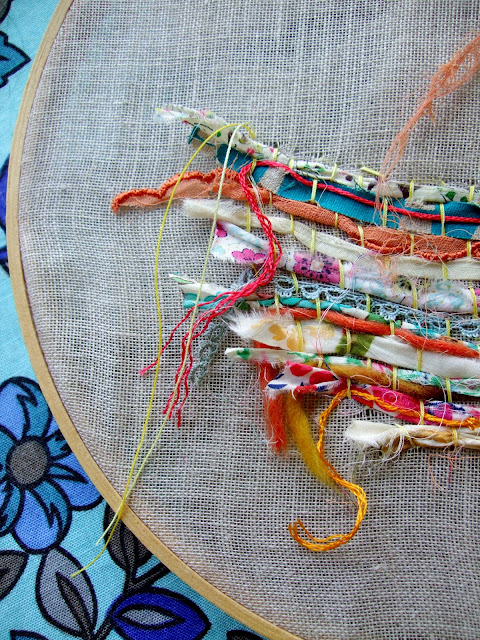





.jpg)
No comments:
Post a Comment